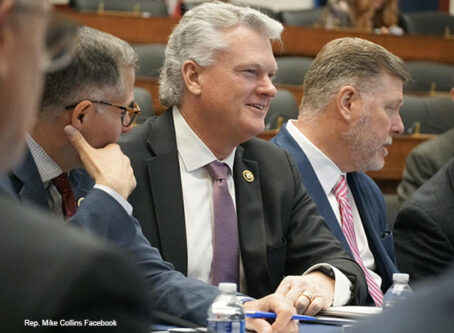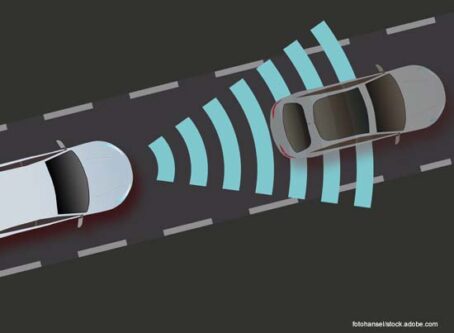FMCSA pulls back top speed from speed limiter proposal
The Federal Motor Carrier Safety Administration released a report this week that appeared to reveal the agency’s proposed top speed for its speed limiter rulemaking.
Then, a la Gilda Radner’s Emily Litella character on “Saturday Night Live,” FMCSA looked straight into the camera and said, “Never mind.”
Late in the afternoon on Monday, Sept. 25, FMCSA revised its speed limiter entry in the U.S. Department of Transportation’s September 2023 Significant Rulemaking Report to no longer include a top speed in the summary.
The original report indicated that FMCSA’s supplemental notice of proposed rulemaking to mandate speed limiters would cap most commercial motor vehicles at 68 mph. Soon after, FMCSA pivoted to suggest that 68 mph is only one of the options being considered for the proposal set to be released in late December.
“A top speed has not been determined … The limit of 68 mph is one of the options being considered as it was included in the petitions for rulemaking and discussed in the 2016 notice of proposed rulemaking,” an FMCSA spokesperson said. “It should be noted, however, that no final decision has been made on the maximum speed limit that would be proposed in the forthcoming supplemental notice of proposed rulemaking.”
It is unclear whether FMCSA intends a top speed of 68 mph but had to pull back the entry to follow procedure, or if the inclusion was completely in error.
Either way, FMCSA indicated that significant rulemakings must be reviewed by the White House Office of Management and Budget before they can be published and sent out for public comment. Among these is “the maximum speed setting to be proposed,” FMCSA said.
Where do we go from here?
Although its proposed top speed is unknown, FMCSA has a target date of Dec. 29 to release a supplemental notice of proposed rulemaking, which is expected to include a top speed.
But it remains to be seen whether FMCSA will be able to unveil the proposal before the end of the year. As mentioned, OMB will have to approve the proposal before it can be published in the Federal Register. That process often can take months. In fact, a previous speed limiter proposal was under review at OMB for 15 months.
Once a supplemental notice of proposed rulemaking is published, the public will have an opportunity to comment. The agency will then have to review what will likely be thousands of comments before it can determine whether or not to move forward with a final rule. Even if FMCSA moves at a brisk pace, it would most likely be well into 2025 before any rule could take effect.
History lesson
Attempts to mandate speed-limiting devices on heavy-duty trucks are not new. The National Highway Traffic Safety Administration published a report on the topic all the way back in 1991, and the American Trucking Associations petitioned NHTSA to limit trucks to 68 mph in 2006.
The effort resurfaced in 2016, when FMCSA and NHTSA issued a joint notice of proposed rulemaking, but the proposal was shelved after a new administration took office in 2017.
Last year, FMCSA resurrected the idea by issuing a supplemental advance notice of proposed rulemaking that considers requiring most commercial motor vehicles with a gross vehicle weight of 26,001 pounds or more to be equipped with speed-limiting devices.
The Owner-Operator Independent Drivers Association, which represents small-business truck drivers, opposes mandating speed limiters on trucks at any speed. The response from the supplemental notice showed that the majority of commenters agreed with OOIDA. FMCSA received more than 15,000 comments, most of them from truck drivers opposed to a mandate.
OOIDA President Todd Spencer told Land Line Now on Tuesday, Sept. 26 that FMCSA’s gaffe may be the result of “too many cooks in the kitchen.” Regardless of the reason, however, Spencer said OOIDA will be working to fight for truck drivers who don’t want to see a mandate at any speed.
“The frustrating part of this for drivers is that they have to live with the ramifications of whatever rules that these folks come up with,” Spencer said. “Of course, they live in the real world, where they have to interact with traffic. This isn’t really a complicated issue. The ideal speed policy for any agency to take, whether it be federal, state or local, is to do something that tries to keep traffic moving at or close to the same speed.”
Efforts to stop rulemaking
A bill in the House and the Senate aims to make FMCSA’s work on speed limiters moot. The DRIVE Act, introduced by Rep. Josh Brecheen, R-Okla., and Sen. Steve Daines, R-Mont., would stop FMCSA from moving forward with a rulemaking on speed limiters.
The lawmakers cite states’ rights and safety as some of the reasons a national speed limiter mandate should be stopped.
The DRIVE Act currently has 27 co-sponsors in the House and eight in the Senate. LL









